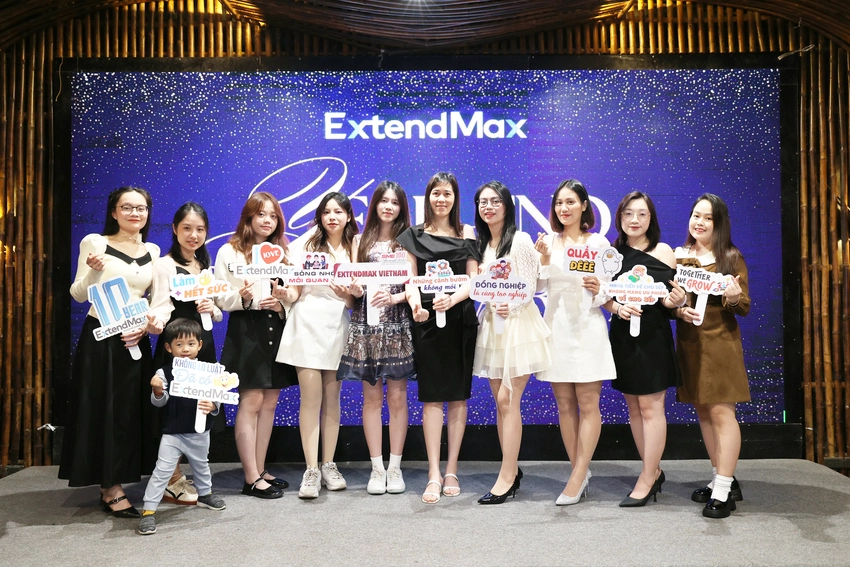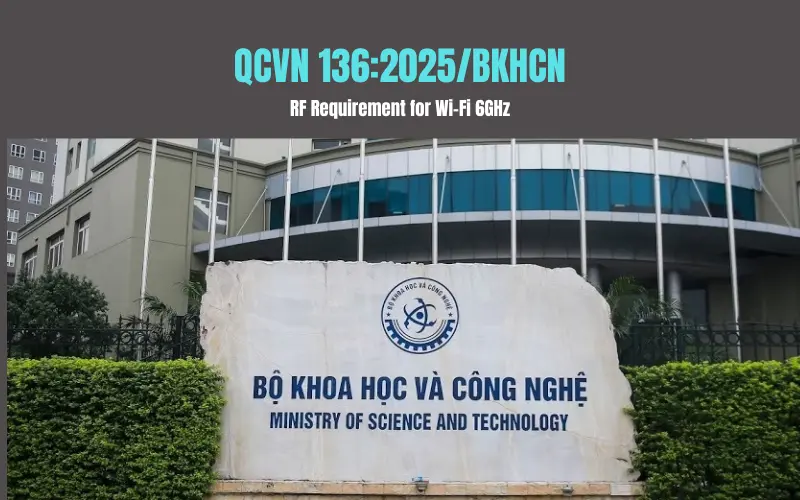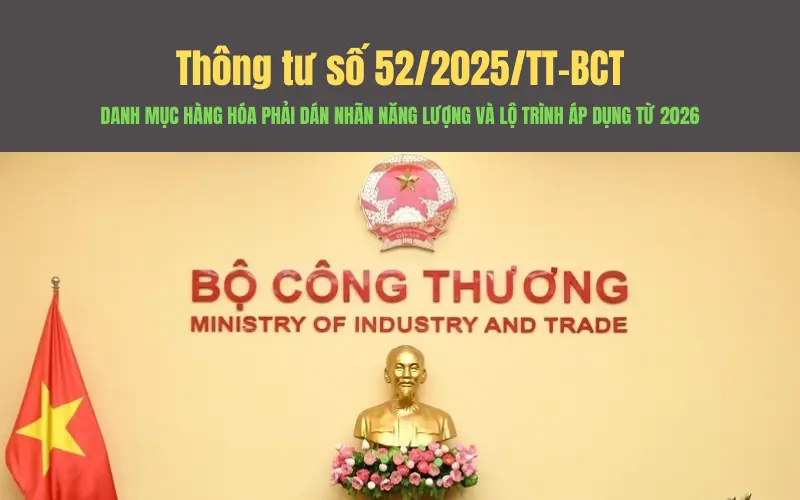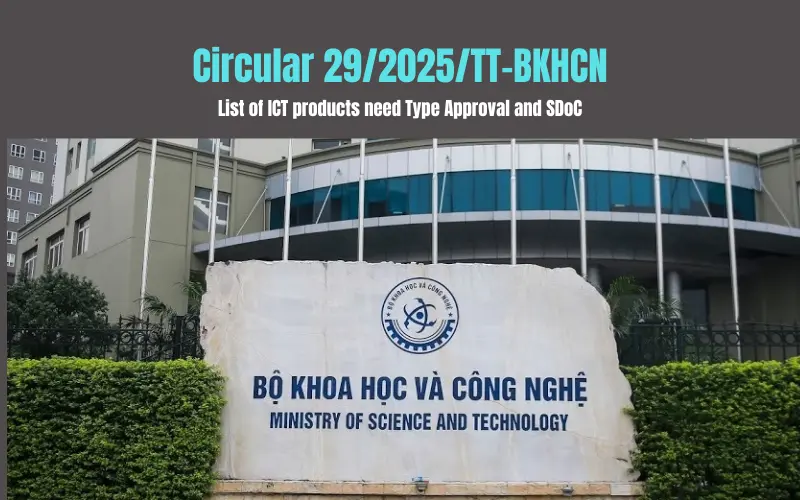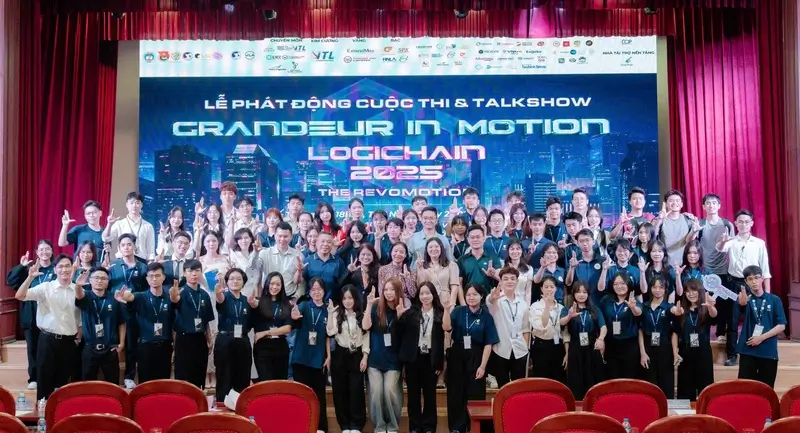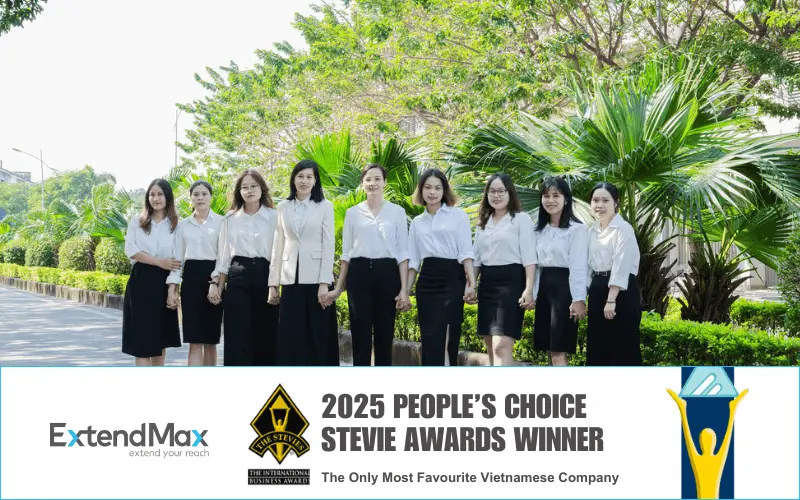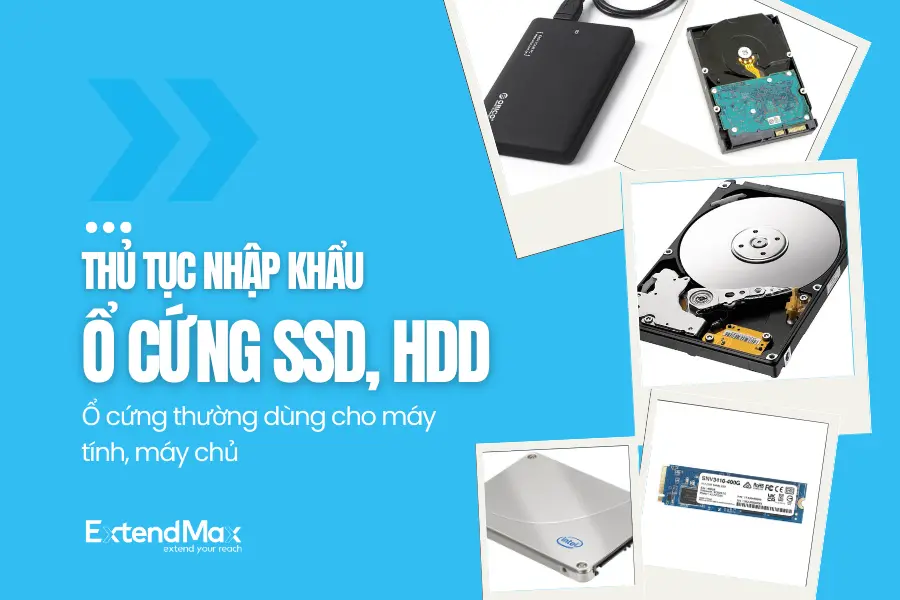Cases in which products are not allowed to be brought to the domestic market can be regulated by various legal documents such as the Constitution, Laws promulgated by the National Assembly, Government decrees, Decisions of the Prime Minister, Circulars of the Minister. In the scope of this article, we only analyze issues related to radio transceiver and information communication technology (ICT) products under the management of the Ministry of Information and Communications, which have been imported legally, but "not allowed to put on the domestic market" according to the regulations of the Ministry of Information and Communications.
Clause 3, Article 21 of Circular No. 30/2011/TT-BTTTT of the Ministry of Information and Communications (amended and supplemented by Circular No. 15/2018/TT-BTTTT and Circular No. 10/2020/TT-BTTTT) has stipulates as follows:
"3. Organizations and individuals are not allowed to put on the domestic market products that are not subject to regulation conformity certification specified in Article 7 and are not subject to regulation conformity announcement specified in Article 8 of this Circular"

1. What does "not allowed to put in the domestic market" mean?
To understand and apply the above regulations, we first need to understand the concept of "domestic market". There are many definitions and concepts of "market" in the broad and narrow sense, but currently in the current legal documents there are no specific provisions on the concept of the market as well as issues related to the market. school. Therefore, we refer to some market concepts as follows:
→ A market is a place where the ownership of a product, service or currency is transferred, in order to satisfy the needs of both supply and demand parties for a certain type of product according to current practices, thereby specifying the number of required quantity and price of products and services;
→ A market is a collection of buyers and sellers that interact with each other, resulting in the possibility of exchange;
→ A market is a place where the buying and selling of a certain commodity takes place. In this sense, there is the rice market, the coffee market, the stock market, the capital market;
Thus, we can understand that the market is related to the activities of buying, selling and exchanging products and goods. "Not allowed to put in the domestic market" can be understood as not buying, selling, exchanging (these products) with buyers who are organizations or individuals within the territory of Vietnam.
2. Why are these products "not allowed to put in the domestic market"?
Group 2 goods and products are products capable of causing unsafety, so state management agencies promulgate documents to manage and protect the rights and interests of related organizations and individuals. mandarin. The cases in which the product may cause unsafety are as follows:
→ The product may pose a risk of unsafety in terms of security and defense.
→ The product is not safe and can be dangerous for users.
→ Products has poor quality, causing economic damage to buyers and users.
→ The product does not comply with the national radio frequency spectrum allocation planning of Vietnam.
→ The product may interfere with telecommunications networks or legally licensed radio equipment.
and some other cases...
3. List of products "not allowed to be put in the domestic market"
Clause 3, Article 21 of Circular No. 30/2011/TT-BTTTT, organizations and individuals are not allowed to bring to the domestic market imported or manufactured products in the following cases:
Groups of products and goods are regulated Circular No. 30/2011/TT-BTTTT
1. Products imported by person or by way of goods for personal use as prescribed by law, including: electronic equipment, information technology; public terrestrial fixed and mobile terminals for telecommunications and Internet services that have been permitted to be provided and used in Vietnam.
2. Products imported or produced domestically for display or exhibition in accordance with law; to serve as samples for research and development purposes or as samples for product testing for certification of conformity.
3. Radio equipment of diplomatic missions, consulates of foreign countries, representative offices of international organizations in Vietnam, foreign high-ranking delegations visiting Vietnam are entitled to this regulation. diplomatic privileges and immunities; foreign reporters engaged in short-term press activities in Vietnam (with a press license from the Ministry of Foreign Affairs); amateur radio operator.
4. Products and goods that are not radio transmitters, receivers and transmitters domestically produced or imported for use by manufacturing or importing organizations or individuals.
Groups of products and goods are regulated by Decree 132/2008/ND-CP
a) Luggage of people on entry, movable property of organizations and individuals within the tax-free quota (excluding motor vehicles, special-use motorcycles, and electric bicycles);
b) Goods of diplomatic organizations and individuals, international organizations within the duty-free quota (excluding motor vehicles, special-use motorcycles, and electric bicycles);
c) Samples of goods for advertising have no use value; sample goods for scientific research, research for production; goods samples for testing in service of assessment and certification of conformity with national technical regulations, interlaboratory testing;
d) Goods temporarily imported for display or introduction at trade fairs and exhibitions;
dd) Gifts and gifts within the tax rate (excluding motor vehicles, special-use motorcycles, and electric bicycles);
e) Goods exchanged by border residents in the tax rate;
g) Goods, supplies, equipment and machinery temporarily imported for re-export that are not consumed and used in Vietnam;
h) Goods in transit, border-gate transfer, transshipment;
i) Goods brought from abroad into bonded warehouses (not applicable to goods brought from bonded warehouses to inland for consumption);
k) Raw materials, supplies and samples for processing for foreign countries or for the production of goods for export; raw materials for the production of goods for domestic consumption and circulation in the market in case the goods have been quality controlled according to the respective national technical regulations (except for materials imported for use in the production of fertilizers). , pesticides, animal feed, aqua feed, livestock waste treatment products, aquaculture environment treatment products and spare parts, components, components, systems of the method means of transport in group 2) products and goods.
m) Goods are re-imported for repair or recycling at the request of foreign partners;
n) Goods imported to serve urgent requirements under the direction of the Government or the Prime Minister;
o) Goods imported exclusively for national defense and security purposes;
p) Other goods for non-commercial purposes (non-commercial type) under the decision of the Minister in charge of the sector or field.
(Currently, the Ministry of Information and Communications has not issued a list of non-commercial imported goods that are exempt from quality inspection.)
4. What organizations and individuals need to pay attention to to avoid violating regulations?
The acts of buying and selling products in the domestic market as listed below are violations of the regulations of the Ministry of Information and Communications (except where these acts are not regulated or prohibited by legal documents. legislation at a higher level (e.g. Law promulgated by the National Assembly, Government Decrees, Decisions of the Prime Minister) or permitted by legal documents at the same level (e.g. Circular of the Minister of Information and Communications and other functional ministries):
→ Buying, selling, exchanging imported products which has been imported hand luggage (typically phones, laptops)
→ Buying, selling, exchanging imported or domestically produced products for display and exhibition (exempt from quality inspection).
→ Purchase, sale, exchange of assets of individuals moving (from abroad) who have been exempted from state quality inspection when importing.
→ Buying, selling, exchanging gifts (which are information technology products) that have been exempted from state quality inspection upon import.
→ Buying, selling and exchanging products without radio transmitting function (eg desktop computers) imported for self-use and exempted from regulation conformity announcement procedures upon import.
→ Because the Ministry of Information and Communications has not yet issued a list of products and goods (with HS code) imported for non-commercial purposes exempt from quality inspection. All types of non-commercial imported goods that do not go through the quality inspection process will not be allowed to buy and sell (even if they are exempt from state inspection according to the tax-free quota).
→ Other import cases but not through the process of quality inspection, regulation conformity certification, regulation conformity announcement
5. How should organizations and individuals handle no longer need to use the product?
Since imported and manufactured products in the forms listed above are "not allowed to put in domestic market", organizations and individuals can choose one of the following handling options when they no longer need to use them:
→ Exporting, or selling to organizations and individuals outside of Vietnam (it should be noted that many countries prohibit the import of used ICT goods)
→ Giving and donating products to other organizations and individuals (the donation is not a trading or exchange activity, so it is not considered "putting it on the domestic market")
→ Discard the products in accordance with the law

